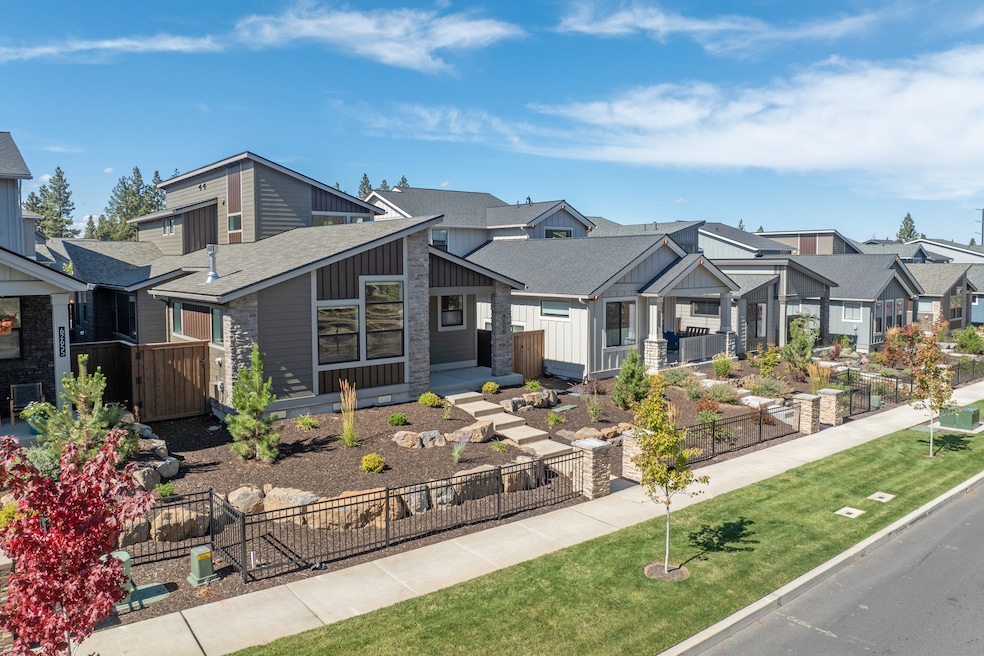Among the numerous federal agencies getting new leadership in 2025 is the U.S. Department of Housing and Urban Development, which plays a key role in many home transactions but doesn't often see the limelight.
President-elect Donald Trump said in November he would nominate Scott Turner, a former Texas state representative and professional football player, as the next housing secretary.
Turner is currently chief visionary officer for JPI, a Dallas-based housing developer. During Trump’s first presidency, Turner helped implement the opportunity zone program that provides tax credits for investing in housing and other development in low-income neighborhoods.
If the U.S. Senate approves his appointment, Turner would manage an agency that has a $73 billion budget, with almost 80% going to private and public rental housing. The Federal Housing Administration’s home loan program — that operates within HUD and helped about 800,000 households buy their homes in 2022 — is just a sliver of the budget because it generates most of its own income through mortgage insurance premiums. As a comparison, Fannie Mae, a private company controlled by the federal government that buys home loans from lenders, acquired 1.15 million single-family home loans in 2022.
It’s hard to say what changes Turner might make as secretary but the home loan program has not changed much through various presidential administrations, said Laurie Goodman, a fellow with the Urban Institute research organization.
“So much of what they do is not political,” she said in an interview about the home loan program.
About 83% of people who obtain mortgages through HUD and the FHA are first-time buyers, Goodman said. By contrast, around half of non-FHA home purchase loans go to first-timers. Buyers who go the FHA route are typically eligible for these loans because they have lower credit scores than what’s needed for more conventional bank loans, or they don’t have much money to use for a down payment.
From the Homes.com blog: FHA Loans Explained: A Guide for Homebuyers
Another way the agency is important to many Americans is through the HUD code that has regulated manufactured housing since 1976 to ensure they are safe. While other forms of housing are governed by state building codes, manufactured homes are in their own category because of their unique characteristics. A key distinction is that they are assembled in a factory and transported to their final destination and not built directly on the house site.
In a recent example of how HUD can amend the code, the agency said in August it would allow manufactured housing to include up to four dwellings within a structure.
Few people move manufactured homes once they’ve been installed on a residential lot. With that in mind, U.S. Sen. Tim Scott, a Republican from South Carolina, is pushing legislation to remove a provision of the HUD code that requires these homes to have a metal frame under them to support them when they are transported. The change would save homebuyers up to $10,000, according to one estimate, and allow more flexible floor plans.
More affordable housing
In 2023, HUD launched a new program that awards grants to cities, states and regional groups to identify and remove barriers to developing affordable housing. The agency distributed $85 million in grants earlier this year and said in August it would award another $100 million.
“I think this program is a game-changer,” Adrianne Todman, HUD’s acting secretary, said during a recent podcast by the National Housing Conference, a nonprofit advocacy group. “It’s the first time the federal government is trying to tip the scale to ensure housing is built more efficiently and with more urgency.”
Los Angeles County plans to use the $6.7 million grant it received as part of the $85 million to build sewer and transportation infrastructure in outlying areas to make them more inviting to housing developers. A second example of the 21 entities awarded grants was Fort Worth, Texas, which received a $5 million grant to create a set of pre-approved architectural plans for houses to help lower developers’ costs.
HUD also enforces fair housing laws and investigates complaints of discrimination against people seeking a place to live. In a November statement, the National Fair Housing Alliance advised the federal agency’s next secretary to remain vigilant as reports of housing discrimination reach an all-time high. The alliance cited a 2022 study that found evidence of biased appraisals that devalued homes in numerous majority-Black neighborhoods.
“Mr. Turner should work to curb discrimination, which costs the economy trillions, by focusing on reforming the systemic undervaluation of homes in Black and Latino communities,” the alliance said.
Two more HUD programs worth noting, though they consume a tiny part of the agency’s budget, are the Self-Help Homeownership Opportunity Program and housing counseling. SHOP funds housing for low-income families, with participants contributing their own sweat equity toward building or renovating their houses. HUD works with a network of more than 1,500 counseling organizations to help ensure people are ready to make housing decisions, including buying a home.

